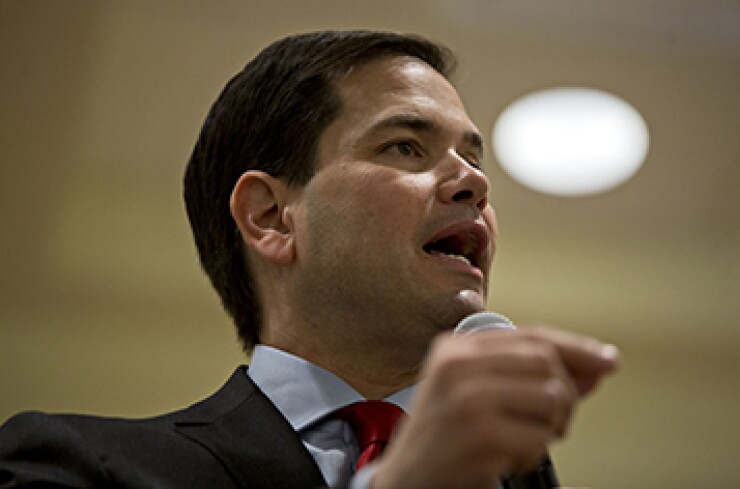
WASHINGTON – Sen. Marco Rubio, R-Fla., has introduced a bill designed to help Puerto Rico's struggling economy grow by raising residents' hourly wages while reducing the portion of those wages that employers on the island need to cover.
The senator offered the bill on Tuesday, saying it would help struggling workers and families in Puerto Rico "by immediately boosting their pay and reducing the cost of hiring so it's easier to find a job."
"With Puerto Rico's economy suffering from high unemployment and low wages, it's hard for many Americans on the island to make ends meet," Rubio said. "By expanding the workforce, increasing opportunity and making work pay more, we can help Puerto Rico get back on the path to growth and prosperity."
As a member of the Congressional Task Force on Economic Growth in Puerto Rico, Rubio said he is "proud to have brought this idea to the table" and encouraged his colleagues to consider it as they prepare their final report.
The task force is an eight-member group of U.S. senators and representatives established by PROMESA. The group's goal is to locate problem areas for economic growth in Puerto Rico and propose federal solutions to help fix them. The task force must submit a final report on its findings by the end of the year.
Rubio's bill would create a new section for employees in Puerto Rico under the Fair Labor Standards Act of 1938. The section would establish an opt-in system where participating employers disburse pay raises to all employees earning below the median hourly wage in Puerto Rico, which is currently $10 per hour.
The raise would be equal to half the difference between the employee's hourly wage and the median hourly wage for Puerto Rico up to a maximum of $2.50 more an hour. The median wage for Puerto Rico would be locked in at $10 for the first two years.
Employers would pay the employees the subsidy above their current below-median wage and that payment would be deducted from the employers' total payroll tax liability. If the subsidy liability exceeds the total payroll tax liability, the employers would receive a quarterly check from the Treasury Department to make up the difference. The credits and disbursals would be financed through U.S. general revenues.
The bill would also set various quarterly reporting requirements for employers that choose to participate in the program, including: estimates of the number of workers who will be employed for the quarter; the payroll tax liability for the quarter; the hourly rate of pay for employees; and the wage subsidy liability for the quarter.





